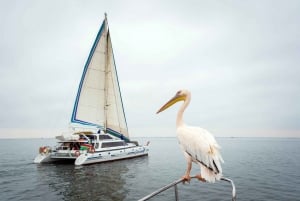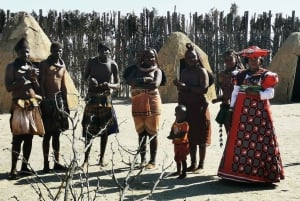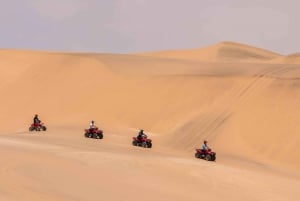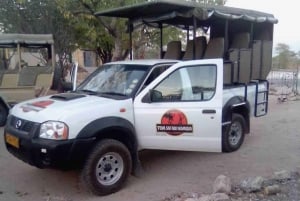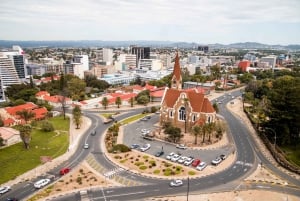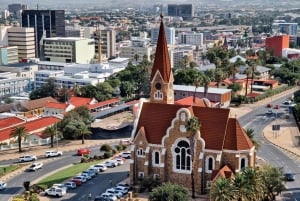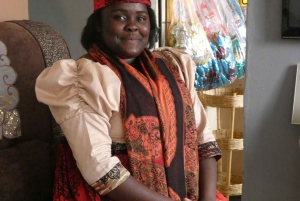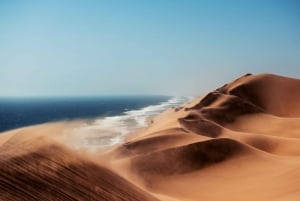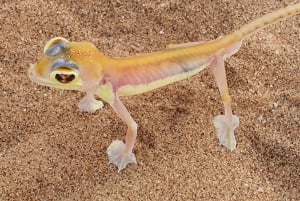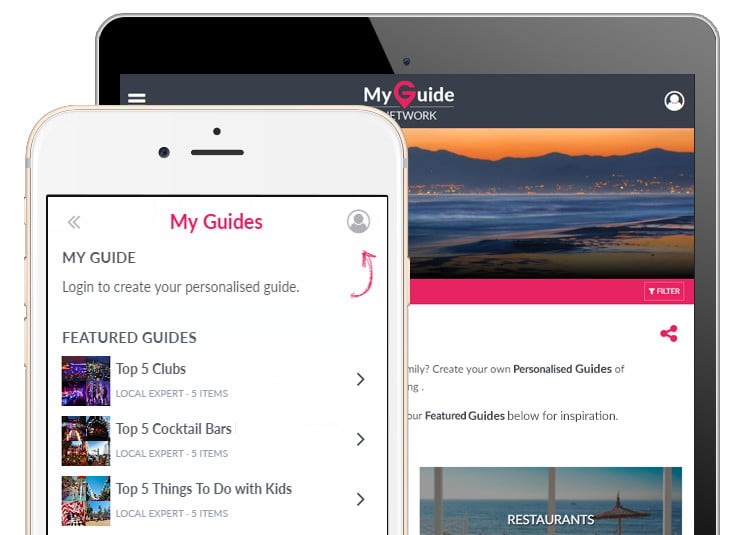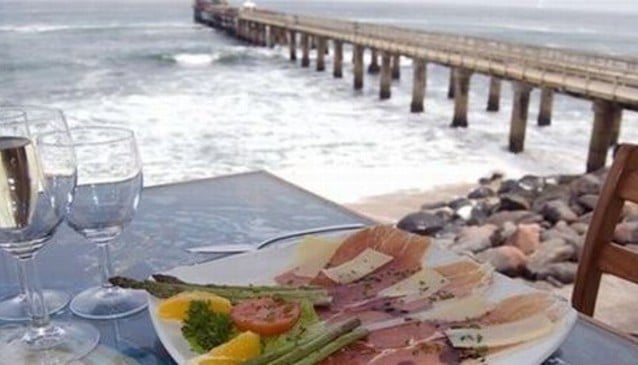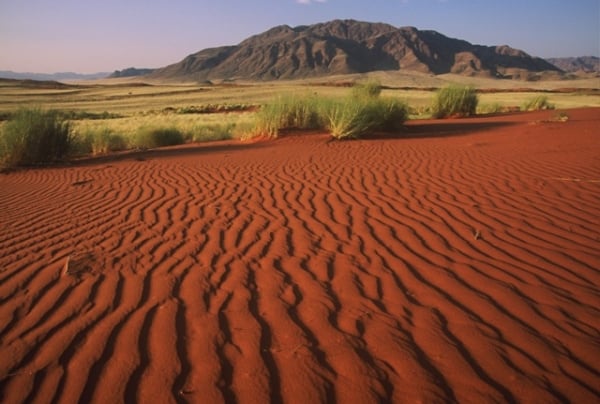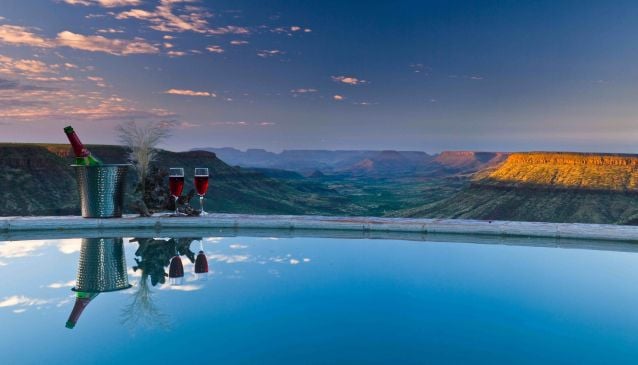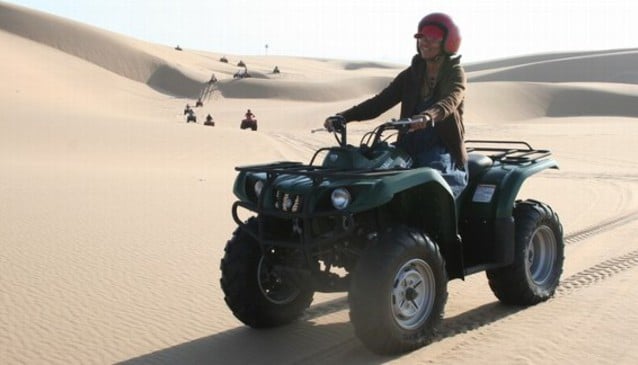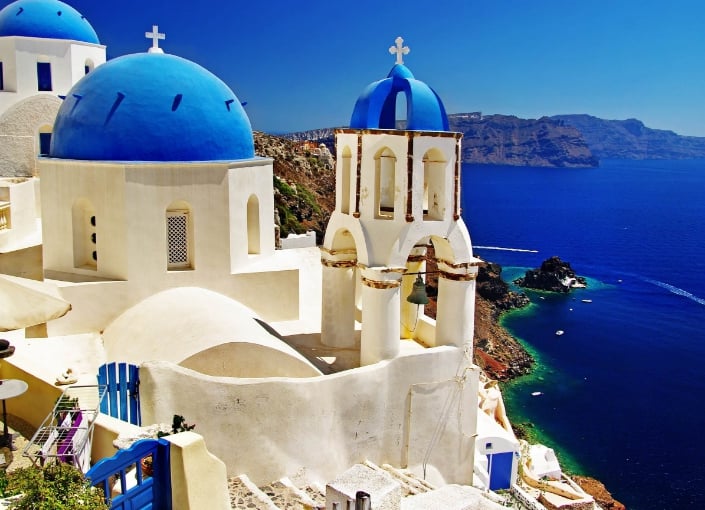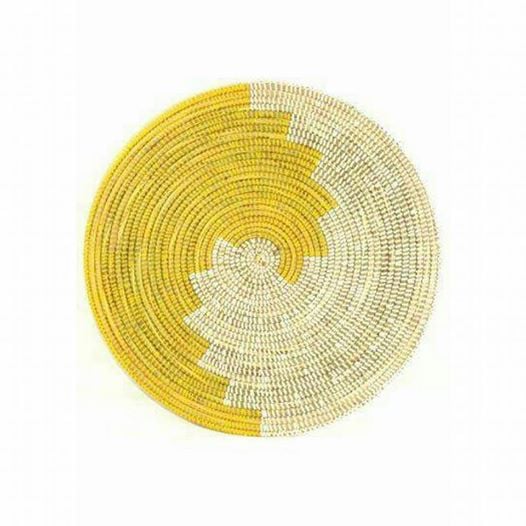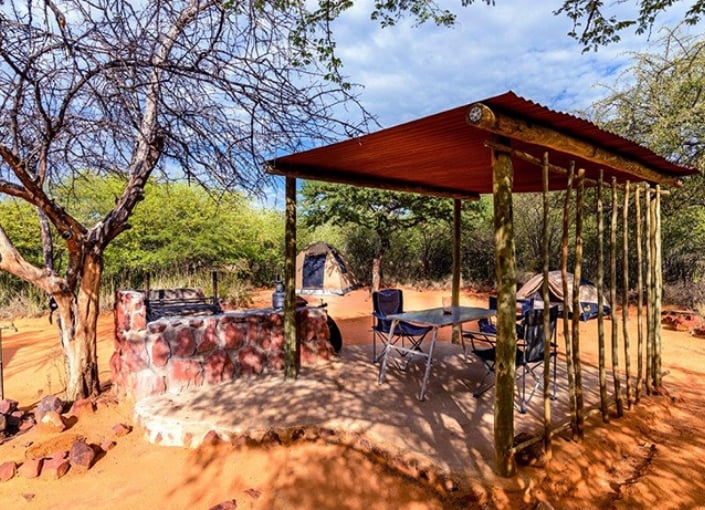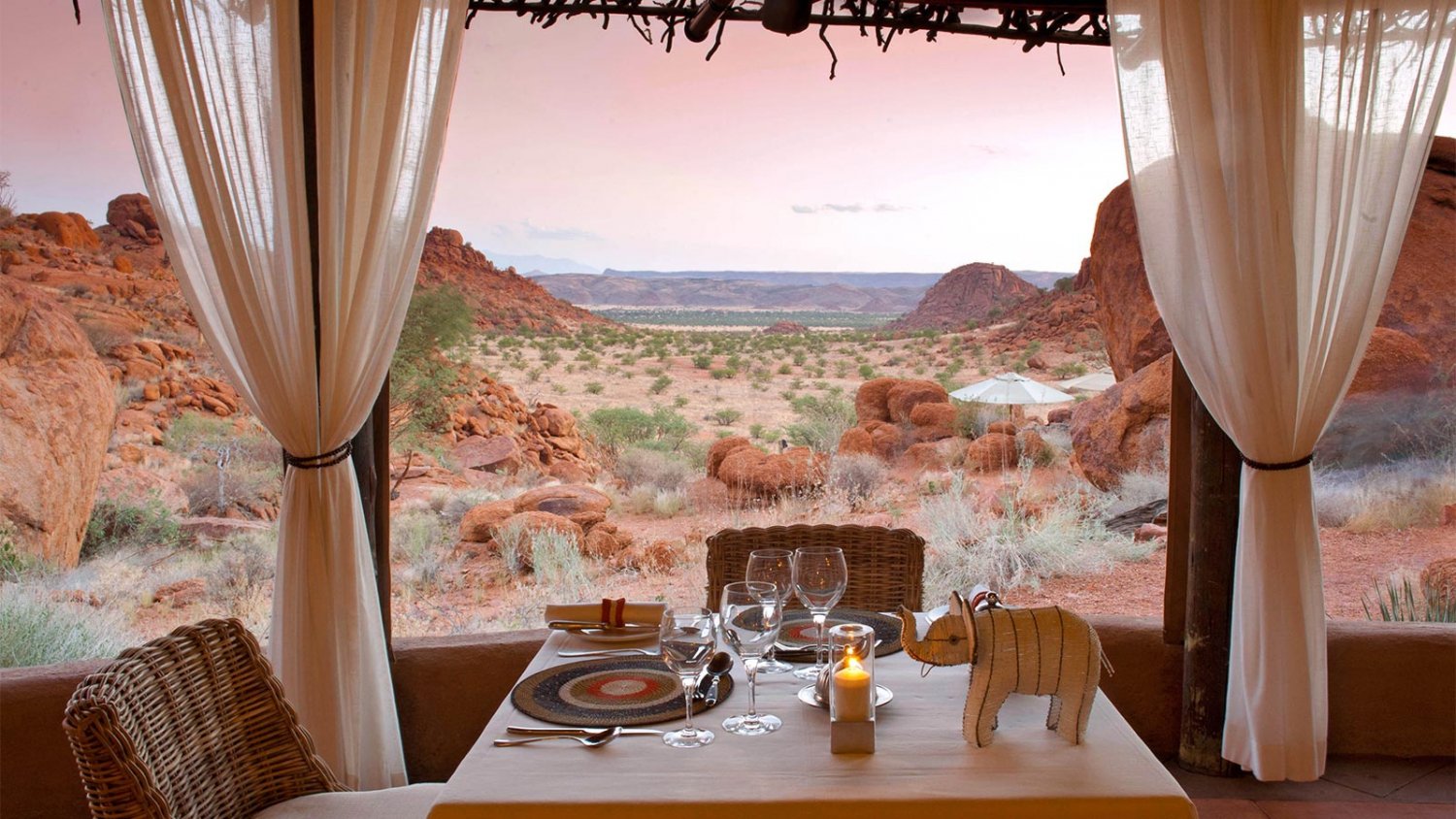Travel Tips
What to Pack
Namibia’s climate is that of a typical desert landscape, days are warm and pleasant with evenings being cool and even chilly. Guests are advised to pack for both scenarios as early mornings on a game drive vehicle or other activity can be nippy whereas during the day temperatures can be quite hot.
Packing Check list:
· A basic First-aid kit containing insect repellent, possibly a malaria prophylaxis, bandages, diarrhea medication and painkillers as well as sufficient supplies of your regular/chronic medicines
· Sunglasses, sun protection and a hat
· Moisturizing lotion and lip balm
· Comfortable walking shoes
· Swimsuits
· Binoculars
· Battery-operated or conventional razors (if visiting remote areas)
· Torch
· Telephone list with all the emergency numbers, including the numbers of family and friends back home
· Rehydrate solutions or concentrates
Travel Tips:
Namibia is undoubtedly one of the best countries in Africa to visit. With its undulating landscape of rusty red dunes, wide open grassy plains and intriguing system of wetlands and rivers to the far north, the country sets itself up to impress with rich cultures and a vast array of different activities to engage in. No medical certificate or injections are required to visit, guests are however advised to take malaria precautionary medication when visiting the northern areas. Medical care in Namibia is of a very high standard and accommodation establishments are well set up to respond to emergencies. Medical evacuations can be done by air from almost every direction and hospitals are well equipped with excellent services. As a standard traveling procedure, make sure that your travel insurance is in order.
Other useful information:
Electricity:
220 volts AC, 50hz. Outlets are of the round three-pin type.
Time Zone:
Summer time: GMT + 2 hours from the 1st Sunday in September to the 1st Sunday in April
Winter time: GMT + 1 hour from the 1st Sunday in April to the 1st Sunday in September
Health:
Namibia maintains very high standards of medical care with hospitals, dentists and doctors found in all major towns of Namibia. Emergency services are well trained and evacuation flights from almost anywhere in Namibia is possible with accommodation establishments and staff informative and ready to act. Please make sure though, as a standard procedure to any trip, that your travel insurance is in order.
Vaccinations:
There are no mandatory vaccinations for travelers from Europe. If you arrive from a country where yellow fever vaccinations are mandatory you need to produce proof that you have been vaccinated. Take the usual precautions: ask your doctor whether you should renew your vaccinations against polio, diphtheria and tetanus. She/he might also advise to take precautions against Hepatitis A and B. Unfortunately there is no vaccination against malaria.
Malaria:
Malaria is a diseases caused by a parasite and is transmitted through the bites of infected female Anopheles mosquitoes. The risk in Namibia is mainly restricted to the northern parts of the country which include the Caprivi, Kaokoveld, Etosha National Park and Bushmanland. Visitors opting to travel to these are encouraged to consult with their doctors for preventative medication before traveling. Mosquitoes do occur in other parts of the country but are not regarded as risks. Most accommodation establishments provide either repellant or mosquito nets in their rooms. The rainy season of November to April is regarded as the most active time. Guests are encouraged to wear long sleeved clothing during the evenings and to take repellant along when out on activities.
Take careful note of the symptoms of the disease as they are similar to that of flu or diarrhea; high fevers, aches and headaches are accompanied by shivering, severe sweating and dizziness. If the disease is diagnosed in time it is definitely curable, but left untreated it can be fatal. If you experience any of the above symptoms after travelling in a malaria area please consult a doctor immediately.
Tips for keeping mosquitoes at bay:
· Apply mosquito repellent, especially in the evenings, at night and in the morning, Effective repellents such as like 'Peaceful Sleep' and 'Tabard' are widely available in Namibia.
· Wear clothes that cover arms and legs during evenings and early mornings.
· Use insect sprays or repellent incense sticks and spirals in your room. These are available in supermarkets and pharmacies throughout Namibia.
· Sleep under a mosquito net in high risk areas. Most accommodation establishments will offer nets as part of the room décor.
· If you sleep in a tent, make sure that the flap and windows are fitted with mosquito gauze.
· If you need a mosquito net then purchase one. They are available at most NamPost branches and safari outfitters and are also sold directly by "Mossi Nets" in Otavi.
Money Matters:
The Namibian Dollar: (NAD; symbol N$) is in note denominations of N$200, 100, 50, 20 and 10. Coins are in denominations of N$5, N$1, 50 cents, 10 cents and 5 cents. It is linked to the South African Rand (R) on a 1:1 basis (South African Rand = 100 cents). The South African Rand is also legal tender in Namibia, although the N$ cannot be used in South Africa.
Currency Exchange: Traveler’s cheques can be exchanged during normal banking hours at any of the commercial banks or at bureau de change offices. A better rate of exchange is obtainable on travelers cheques than on cash.
Credit / Debit Card Information: American Express, Diners Club, MasterCard and Visa are accepted. Check with your credit or debit card company for details of merchant acceptability and other services which may be available.
Travelers Cheque Advice: To avoid additional exchange rate charges, travelers are advised to take traveler’s cheques in US Dollars or South African Rand.
Currency Restrictions: The import and export of local currency is limited to NAD50,000. The import of foreign currency by visitors is unlimited, provided it is declared upon arrival. Export of foreign currency is unlimited up to the amount imported and declared as long as the departure is within 12 months. No limits exist for travel between Botswana, Lesotho, Namibia, South Africa and Swaziland as these countries are members of the same common monetary area.
Banking Hours: Mon to Fri: 09h00 - 15h30 and Sat: 09h00 – 11h00.
Tax and Customs: General Sales Tax (GST) in Namibia is 15% on goods and services. Bona fide tourists to Namibia are exempt from paying sales duty or excise duty on luxury items. Visitors may reclaim VAT at Hosea Kutako International Airport , Eros Airport and Walvis Bay Airport.
